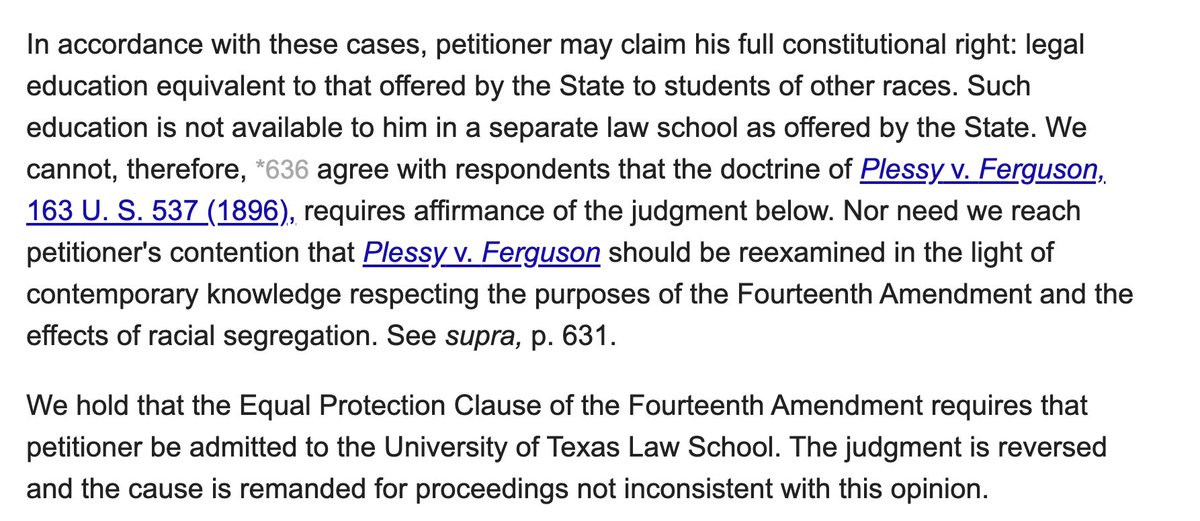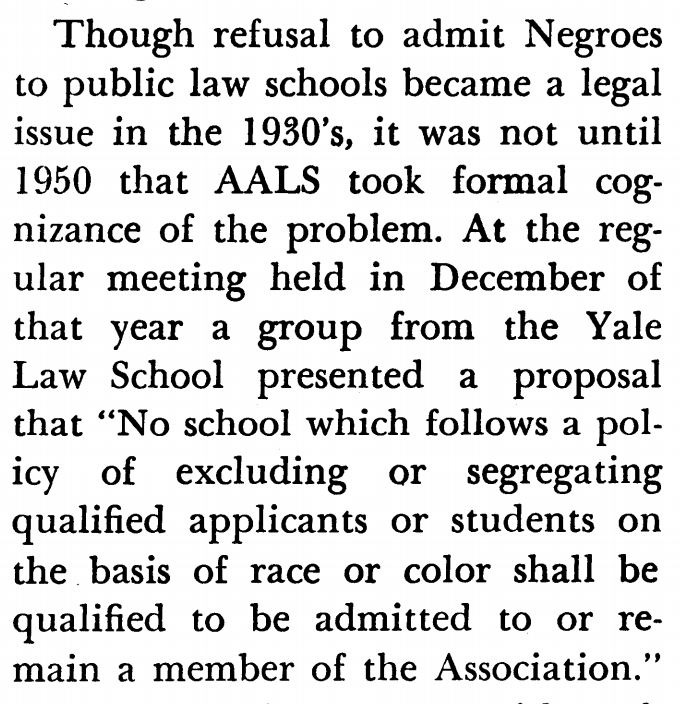
Here's a thread with a few random thoughts about "court packing," that is, changing the size of the Supreme Court.
Bonus: My views are somewhere in the middle and are likely to annoy most people.
Bonus: My views are somewhere in the middle and are likely to annoy most people.
1) Court packing is a really bad idea. It's a major norm violation, & it destabilizes the third branch in a really dangerous way. The counterargument, of course, is that the other side has *already* violated norms; this is a counter to that norm violation. I disagree, because....
it seems to me that the real cause of the claimed "norm breaking" is the gradual devolution, in both parties, to purely partisan Supreme Court votes in the Senate. This wasn't a big problem when Presidential and Senate control were form the same party. Partisan = confirmed.
But then you had the Garland nom, the 1st time that you had a SCOTUS nom from a Pres of one party and Senate controlled by the other since the rise of purely partisan voting on noms. It was inevitable that Garland (who would have been an excellent Justice) wouldn't be confirmed.
The norm of purely partisan voting on SCOTUS noms likely would have remained stable if RBG had lived a few more months. In that case, of polls are right, Biden would have nominated a liberal to replace RBG, and that nominee would be confirmed by a Dem Senate.
It seems to me that the norm-breaking to which court-packing responds is largely about coincidences of timing.
(RBG was urged to step down in 2013-14 with a Dem Pres and Senate. She refused, betting that there would be a Dem Pres and Dem Senate when she was ready. A bad bet.)
(RBG was urged to step down in 2013-14 with a Dem Pres and Senate. She refused, betting that there would be a Dem Pres and Dem Senate when she was ready. A bad bet.)
Having annoyed my D friends with what I've said so far, let me annoy my R friends next!
2) I think it's perfectly understandable that Democrats would be talking about court-packing right now. It's a legally permitted path, and all norms in this area are gradually eroding.
2) I think it's perfectly understandable that Democrats would be talking about court-packing right now. It's a legally permitted path, and all norms in this area are gradually eroding.
If the politics were reversed, I have no doubt that court-packing would be a major topic on the right to counter an increasingly far-left Supreme Court. It's a flaw with Article III, I think; Given the SCT's (modern) role, the Const should settle the Court's size, but it doesn't.
There's also an aspect of this that is the Dem side catching up to hardball politics. In recent years, the R side has filled the courts with very young nominees who are very conservative. But the D side under Obama generally went with older and more moderate picks.
I suspect some of the talk of court-packing will, if Biden wins, be channeled into the Dem side picking younger and more liberal noms for lower courts -- more closely matching the R side.
I also think there's some affirmative value in *talking* about court-packing. It's a reminder that in a system of checks and balances, every move can have a countermove. No one exercising government power, whether in the Senate or in judicial chambers, should think otherwise.
3) I think it makes sense that Joe Biden won't answer what his view is about court-packing. From a policy perspective, it's understandable that an answer might depend on whether Barrett is confirmed and what the Supreme Court would then do.
I gather that making arguments about court-packing is partly about deterrence -- "don't go there, or else I'll go here." Makes sense you would keep the plan vague, as if you announce where you're going either way, the other side has no incentive to change course.
And in terms of the politics, I would guess that Biden himself opposes court-packing but knows that his base is enthusiastic about it. Keeping quiet avoids having to disappoint the base, which is important for turnout. My guess as to the politics, anyway.
4) Finally, the answer to all of this is a constitutional amendment to fix the size of the Supreme Court at 9 and have 18-year term limits, spaced two years apart, so every Prez gets two picks. End life tenure, which makes no sense given the modern role of the Supreme Court.
I see the debate over court-packing as really a prelude to that constitutional amendment. The flaws with life tenure have been made clear, and all norms have eroded. The system needs a fix. The fix should be fixed terms on a fixed court, not court packing.
But given how hard it is to get a constitutional amendment passed, debating court packing as an option may be a needed step to gather the needed support for the constitutional amendment that is the real fix to the problem.
/end
/end
• • •
Missing some Tweet in this thread? You can try to
force a refresh








